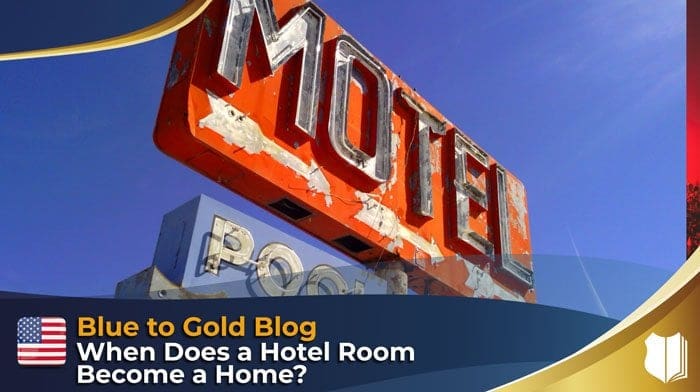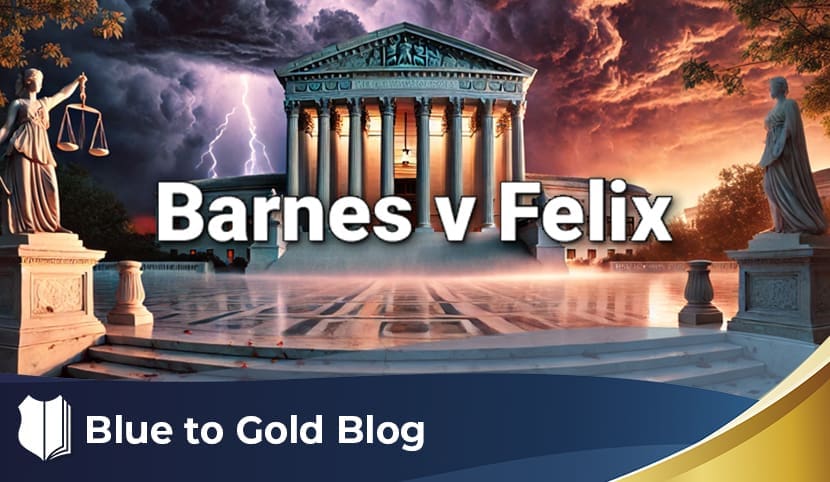Here is our next question: When does a hotel room become a home or an apartment?
If a hotel room is actually constitutionally considered a true home, then you may not be able to evict the occupants without a traditional pre-approval. So let’s walk through this doctrine.
Number one, hotel rooms are quasi homes, right? But I like to say that hotel rooms are like homes with real world consequences. What I mean by that is that is that when a person stays at a hotel room, they have the expectation that they’re not going to be there for a long time.
They also feel more like a guest, than tenants in an apartment. They feel like a guest at the Hilton, the Motel Six, the Robber Inn. So most reasonable people understand that if they violate the rules of the hotel, they can be evicted.
Now, even though court cases use the word eviction, what is actually meant is that they can be ejected from the hotel for what’s called good cause. Good Cause are those things like fighting, breaking property, streaking, paying with a fraudulent credit card and so forth.
If the hotel gives them notice to vacate the premises for good cause and immediately, then the cops can help evict them, eject them, from the hotel room.
Well, you know that you cannot do that with an apartment, or a house, right? In order to evict somebody from an apartment, you have to get judicial approval. Now they can still be arrested for arson and all these other things. That’s a different story. But as far as them losing the right to be at the apartment, that does not happen until judicial approval.
There is this idea that, under the right facts, a hotel room can become a apartment. And what we’re talking about is a two-part test called the rehabilitation of privacy. And a two part test comes comes from a case called Katz 1967.
The first part is: Does the occupant reasonably, subjectively believe that this hotel room is their long term domicile; like that’s where they’re going to stay permanently at this time? And certain places like the Siegal Suites and the Stay America’s sometimes advertise themselves as long term stays. And, if the person has all their belongings there, and they have no other plans to go anywhere else, they can develop a subjective expectation of privacy. Okay; that’s only the first part.
The second part is: Is that expectation, objectively reasonable? Would society also agree with the person’s belief that they have this expectation of privacy in this hotel room and basically treat it as an apartment when the hotel allows these people to stay for a very long time?
What if there is no requirement that they actually check out after 28 days, 30 days, whatever, and check back in as a new occupant to basically remind them that they are a short term occupant there, that they’re a guest and do not live in there forever?
I see this mostly with these long term stays. Now some long term stays, I have heard, actually require the person to vacate the room before 30 days, and then recheck-in and actually go to a different room. If you’re a hotel owner, and that’s what you’re doing, it’s genius, because that makes the message clear to the person that this is not an apartment. This is a hotel room, and therefore the regular eviction rules apply.
Other states have also codified this in statute; California, Nevada, Illinois, and I’m sure others have stated that after 30 days, there’s a presumption that this is the person’s home, and therefore the regular rules of eviction apply.
So here’s the point. What you do with this information is obviously up to you, right? I just want you to think about it. You could be dealing with a hotel, a long term stay, and they’re saying, “We’ve got to get rid of John Doe from room One B.”
And you go over to John Doe, and he’s been living there for three months, and all his stuff is in there. And he’s like, “But this is my home, this is where I live.”
And you go back to the hotel staff and say, “Hey, have you done anything to let this guy know that he is not a long term resident here? Like, do you make him check out after 30 days? I mean, do you do anything like that?”
If they say, “Not really, you know, they can stay as long as they want,” I just want you to consider the fact that this legally may be a an apartment. Constitutionally there is a good argument for that.
You just need to consider this and maybe talk to your legal advisors at your agency.
Good conversation. I just wanted to throw it out there. Keep the questions coming in. Until next time, my friends stay safe and thank you.








